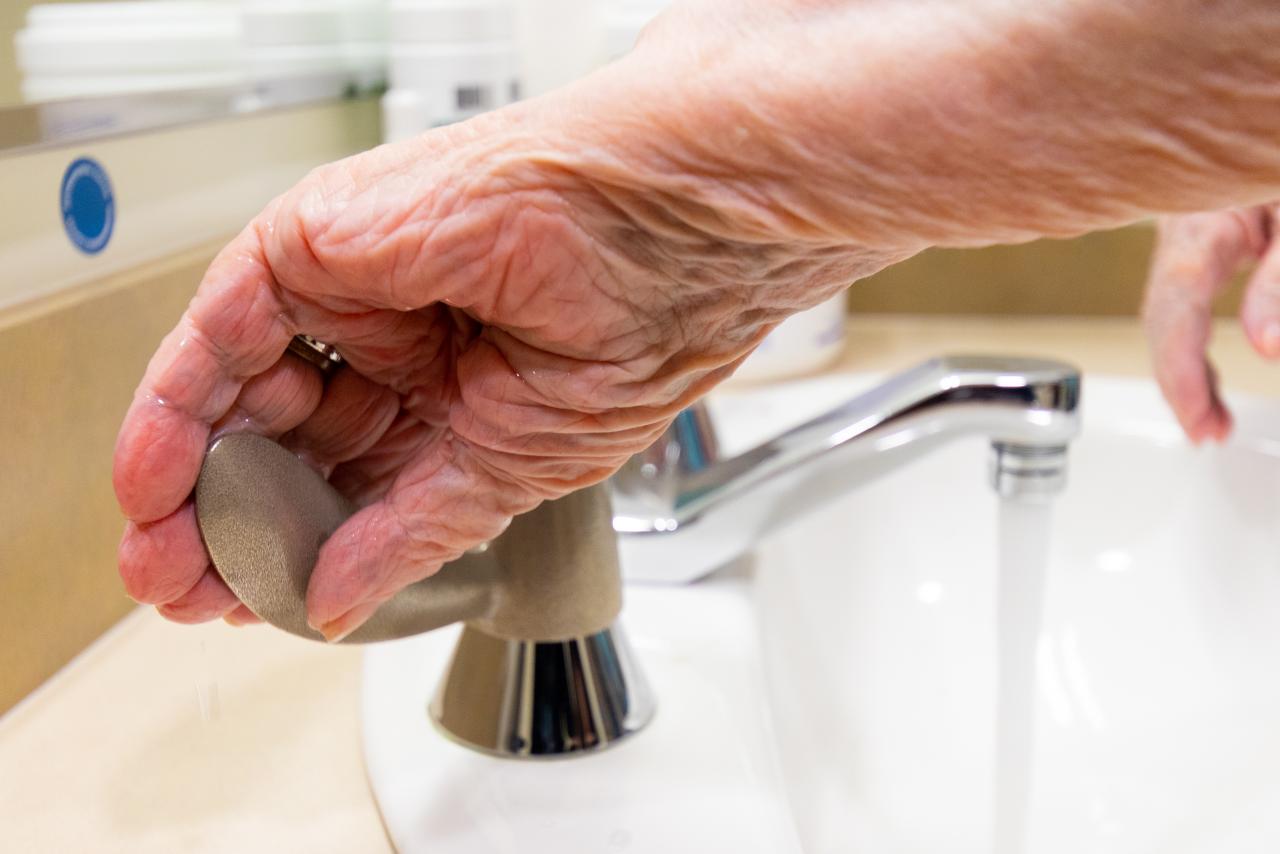Story
Vancouver Coastal Health and Teck Partner to Study How Bacteria-killing Copper Can Reduce the Risk of Infection Transmission in Long-term Care Homes

Vancouver Coastal Health (VCH), Teck Resources Limited and VGH & UBC Hospital Foundation are partnering to study how antimicrobial copper can be used to prevent infections and improve health outcomes in three long-term care homes across the VCH region. Funded by Teck, it will be the first study of its size in Canada.
The groundbreaking research led by VCH includes the installation of more than 600 antimicrobial copper products on high-touch surfaces including door handles, cabinet pulls, faucet handles, flush levers, fridge handles and grab bars in shared spaces at Minoru Residence in Richmond, Berkley Care Centre in North Vancouver and Purdy Pavilion in Vancouver.
“The communal environments of long-term care homes provide a research opportunity to understand how new tools – like antimicrobial copper – can reduce the risk of infection transmission as part of our commitment to quality improvement and providing leading-edge care,”
Jo-Ann Tait, Executive Director, Long-Term Care and Assisted Living
The study will incorporate a number of measures, including microbial load and durability of the copper installations, resident health care acquired illness rates as well as perceptions of staff, residents and their families.
This work will build on previous research conducted by VCH in multiple hospital settings. The Bone Marrow Transplant Unit and the Intensive Care Unit at Vancouver General Hospital have been outfitted with copper as part of previous studies led by the VCH Infection Prevention and Control team. Most recently, VCH, Teck, Translink and Toronto Transit Commission shared the results of a Copper in Transit study revealing that select copper products eliminated 99.9% of bacteria on public transit and 99.9% of viruses in a laboratory setting within two hours of contact.
Antimicrobial copper kills infection-causing bacteria. When combined with other infection prevention and control methods, like cleaning surfaces and other engineered solutions, antimicrobial copper can decrease the spread of infectious disease, reduce hospitalization, decrease readmission rates and lower residents’ illnesses and deaths.


